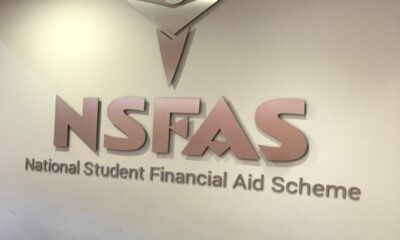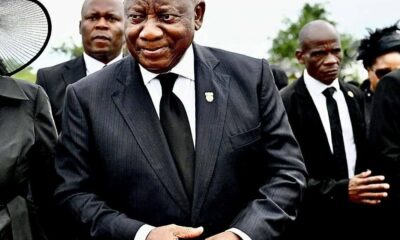Published
5 months agoon

In a provocative stance that challenges a cornerstone of South Africa’s economic regulation, prominent economist Dawie Roodt has publicly called for the Competition Commission to be shut down. His argument is that the institution, designed to foster market competition, is in fact doing the oppositestifling business growth and ultimately harming the economy and consumers.
Roodt’s position is rooted in a fundamental belief in free-market principles. He contends that the very act of regulating competition creates unnecessary red tape and bureaucratic hurdles that prevent businesses from operating efficiently and adapting dynamically to consumer demands.
From Roodt’s perspective, the market is a self-correcting mechanism. If a company becomes too dominant or charges excessive prices, it naturally creates an opportunity for a competitor to emerge and offer a better or cheaper alternative. He argues that this organic process is more effective than a government body deciding what constitutes fair competition.
He likely views the Commission’s merger approvals and market inquiries as interventions that distort natural market outcomes. These processes, he would argue, are slow, costly, and often based on theoretical models rather than the practical realities of business.
Roodt’s proposal is highly controversial and stands in direct opposition to the Commission’s mandate. Proponents of the institution would argue that in a concentrated economy like South Africa’s, the free market cannot always self-correct. Powerful corporations can easily create barriers to entry, collude on prices, and crush small startups before they ever become a threat.
The Commission’s role, in this view, is to be a refereeto prevent anti-competitive behavior that would lead to higher prices, less choice, and suppressed innovation for all South Africans. Its work in uncovering cartels in sectors like construction and banking is often cited as proof of its necessity.
This is more than a debate about a single government entity; it’s a clash of economic ideologies. Roodt’s call represents a libertarian, free-market approach with minimal state intervention. The existence of the Commission represents a regulatory approach that believes the state must actively police the market to protect the public interest.
While the likelihood of the Competition Commission being shuttered is virtually zero, Roodt’s argument ignites a necessary conversation. It forces a re-examination of the balance between regulation and freedom, and asks whether the current model is truly serving the South African economy or, as he believes, holding it back.
{Source: MyBroadband}
Follow Joburg ETC on Facebook, Twitter , TikTok and Instagram
For more News in Johannesburg, visit joburgetc.com


R700m spent on NSFAS admin could fund 9,000 students, Godongwana says


Mining voices warn South Africa is locked into BEE and expropriation path


Calls grow for Godongwana to step aside as economists slam growth forecasts


Alarm bells over proposed new tax for South Africa’s online gambling industry


The simple rule that could stop South Africa’s debt spiral


PG Glass and Glasfit referred to Tribunal over alleged price fixing















